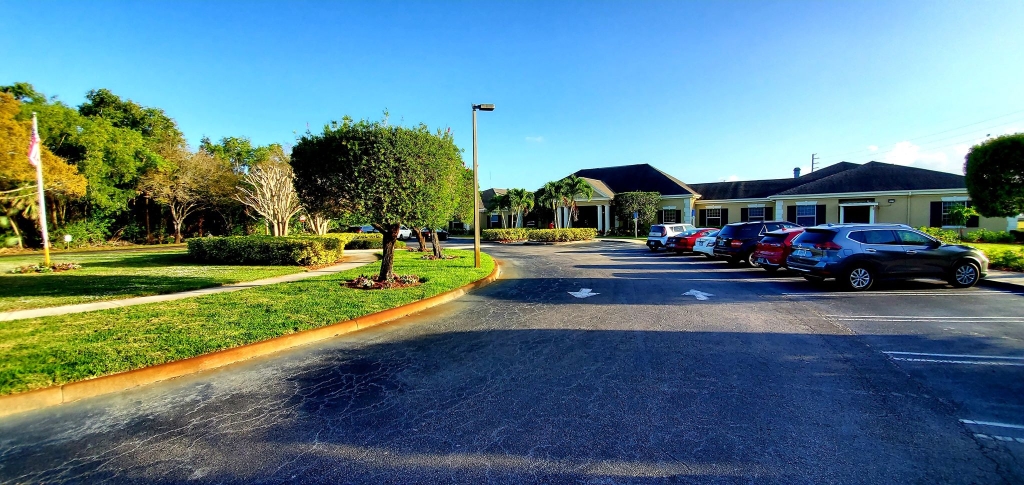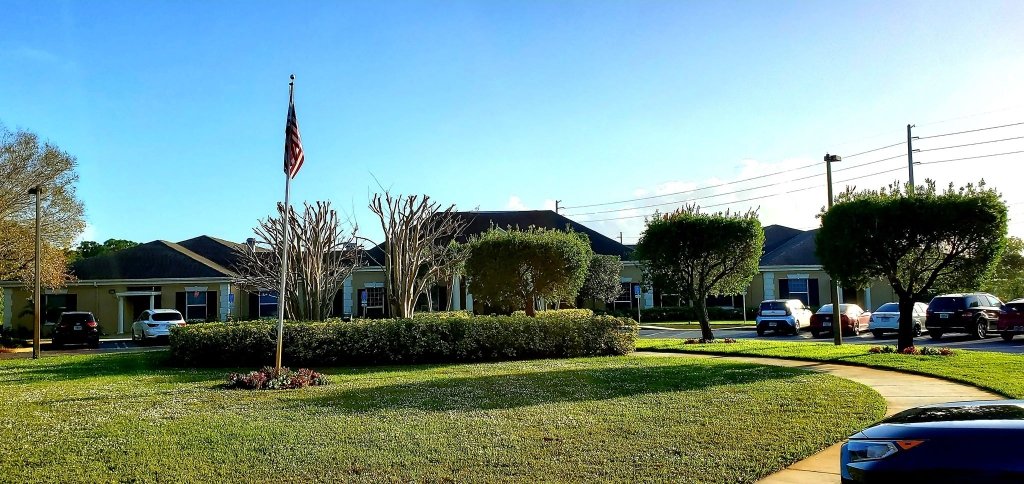
Tiffany Hall Nursing and Rehabilitation Center Pillow Smothering Attack Case
On Sunday, January 5, a 95-year-old resident of the Tiffany Hall Nursing and Rehabilitation Center died after being attacked by an assailant who then fled the building.
Port St. Lucie Police were contacted by staff at the Tiffany Hall Center shortly after midnight Sunday morning. Investigators say the attacker was only discovered because a nurse walked past the patient’s room. She saw a man sitting on the patient’s chest, holding a pillow over his head. The nurse immediately yelled for help, and another nurse rushed to call 911. Hearing the yelling, the attacker ran out of the facility at 1800 SE Hillmoor Drive, Port St. Lucie. The victim was pronounced dead.
Port St. Lucie Police spokeswoman Sgt. Lisa Marie Carrasquillo said officers searched for the man, setting up a perimeter and using search dogs. The St. Lucie County Sheriff’s Office searched from the air, but the attacker is still at large. Unfortunately, investigators still don’t have a good description of the suspect. If anyone has any information related to this crime, please immediately call the Port St. Lucie Police Department at 772-871-5001 or Treasure Coast Crime Stoppers at 1-800-273-TIPS (8477).

Tiffany Hall Nursing & Rehab Center — Photographed by LOCG on January 13th 2020
Nursing Home Patients are Frequent Targets of Physical Abuse in Florida
Sadly, it is not uncommon for elder or disabled patients to be injured or even killed in nursing homes, due to abuse or neglect. If security at the facility is neglected, anyone can walk in and make their way to a patient’s room. In some cases, staff members abuse or harm residents as well. Florida has nearly 700 nursing homes, and one study found that more than 75 percent of nursing home residents in the state report they have been neglected or witnessed another patient suffer abuse in their facilities. Common results of abuse include bedsores, falls, and wrongful death.
Another tragedy occurred in 2017, when eight nursing home residents died at The Rehabilitation Center at Hollywood Hills following Hurricane Irma and a subsequent loss of air conditioning. Although the center was belatedly evacuated, six more patients died in the following days. The Broward County Coroner ruled twelve of the deaths homicide.
Hurricane Irma made landfall on September 10, 2017. Although the Rehabilitation Center did not lose power, their air conditioning system shut down. Staff distributed portable fans and other cooling units, but the residents soon started to show signs of distress as temperatures skyrocketed inside.
After several days of intense heat in the building, more than 115 people were evacuated from the nursing home, some of them in critical condition. Three people were pronounced dead at the scene, another died during the evacuation, and four were pronounced dead at a hospital. The remaining six passed in the weeks after the evacuation. Days later, the facility’s license was suspended and it was closed down.
In 2019, four employees of the facility were charged in nine of the deaths. All four employees, including the facility’s former chief administrator and three nurses, are charged with aggravated manslaughter of an elder or disabled person. Two employees are also charged with falsifying reports. The defendants’ attorneys claim they tried to get help for patients but state officials ignored their requests for help. However, investigators say the nursing home delayed evacuation for several days, although there was a functional hospital right across the street.
After the arrests were made, Hollywood Police Chief Chris O’Brien spoke at a press conference attended by several of the victims’ family members. “The families sitting here today should not have lost their loved once this way. They placed their faith and trust in the facility … and that trust was betrayed. They have been living an absolute nightmare.”
How Tiffany Hall Nursing and Rehab Center Performs in Regulatory Reviews
Tiffany Hall Nursing and Rehab Center in Port St. Lucie has received several deficiency reports since at least 2016, according to an analysis by ProPublica.org. There have been 18 documented deficiencies of care in inspection reports performed by the Department of Health & Human Services at the facility. The reports include deficiencies for food storage and preparation, pest control, bedsores prevention, and not keeping certain patient medications on hand.
In October of 2019, a inspection visit from AHCA, the Agency for Health Care Administration for the State of Florida filed a detailed deficiency report that concluded Tiffany Hall was in violation of an important rule that requires all employees to undergo extensive background screening, including the recording of fingerprints. A review of human resources records revealed that at least one employee was not listen on the HR Clearinghouse Roster, which is the list of screened and approved employees.
That employee, the report says, was already regularly working over 20 hours a week at the facility.

Tiffany Hall Nursing & Rehab Center — Photographed by LOCG on January 13, 2020
How to Ensure Your Family Members are Not Easy Targets for Abuse or Neglect As Patients in Nursing Homes
It’s recommended that people concerned about family members who live in nursing or rehabilitation facilities visit often, on an unpredictable schedule, and look out for warning signs of abuse, which may include:
- Unexplained signs of injury, such as bruises, welts, or scars, especially if they appear symmetrically on two sides of the body
- Broken bones, sprains, or dislocations
- A report of drug overdose or an apparent failure to take medication regularly (a prescription has more remaining than it should)
- Broken eyeglasses or frames
- Signs of being restrained, such as rope marks on wrists
- Caregiver’s refusal to allow you to see the elder alone



